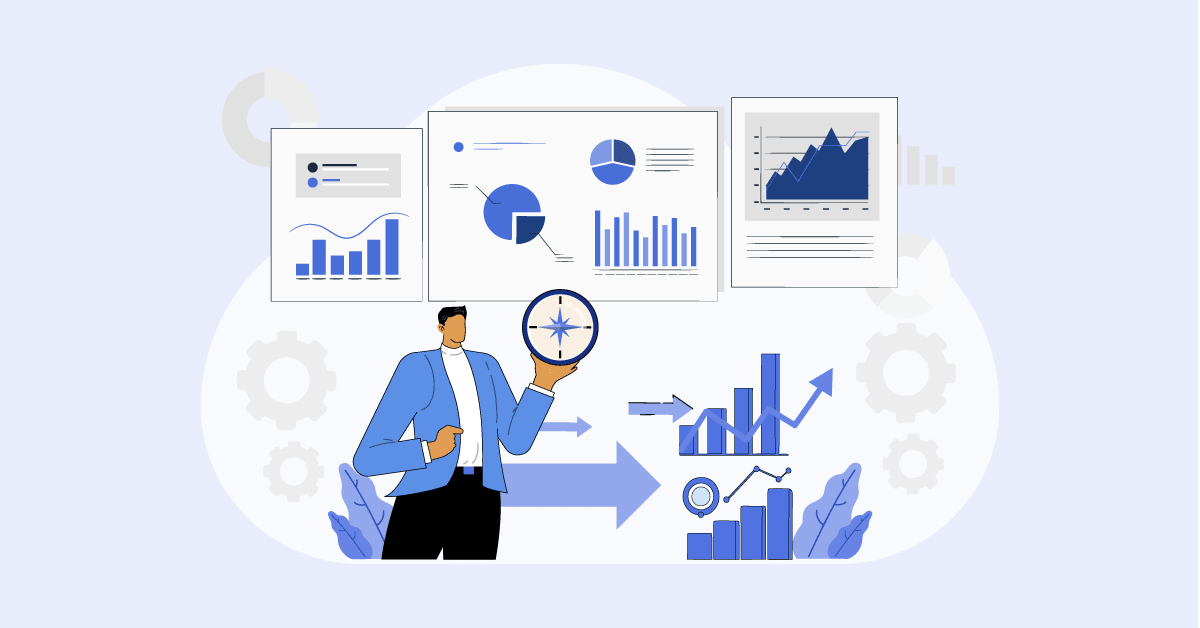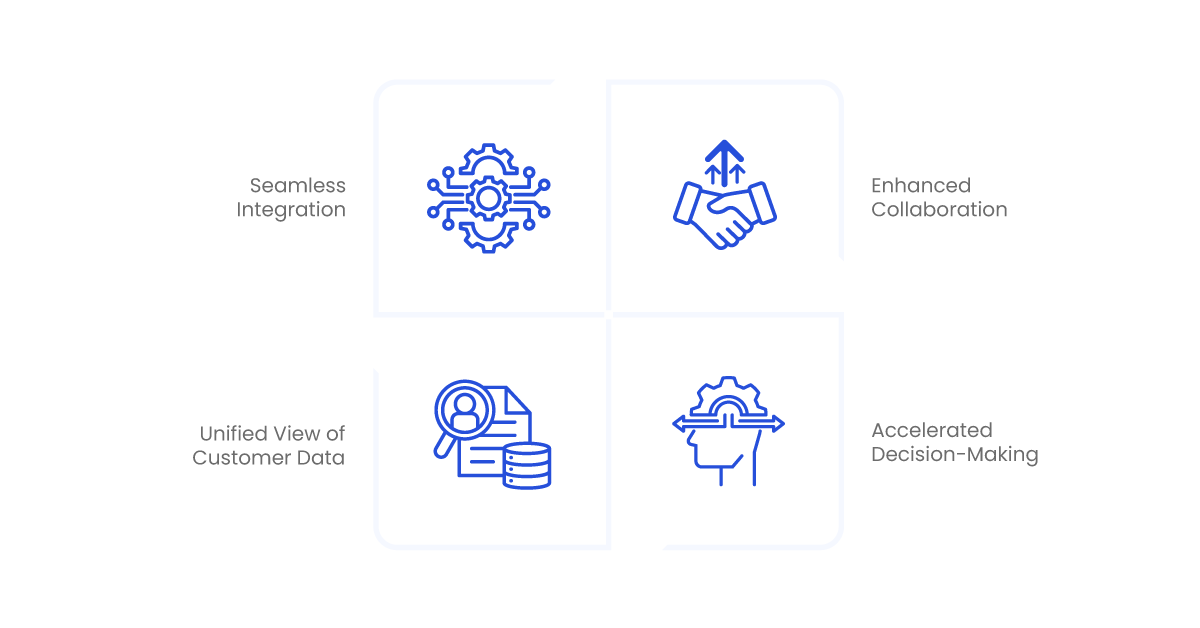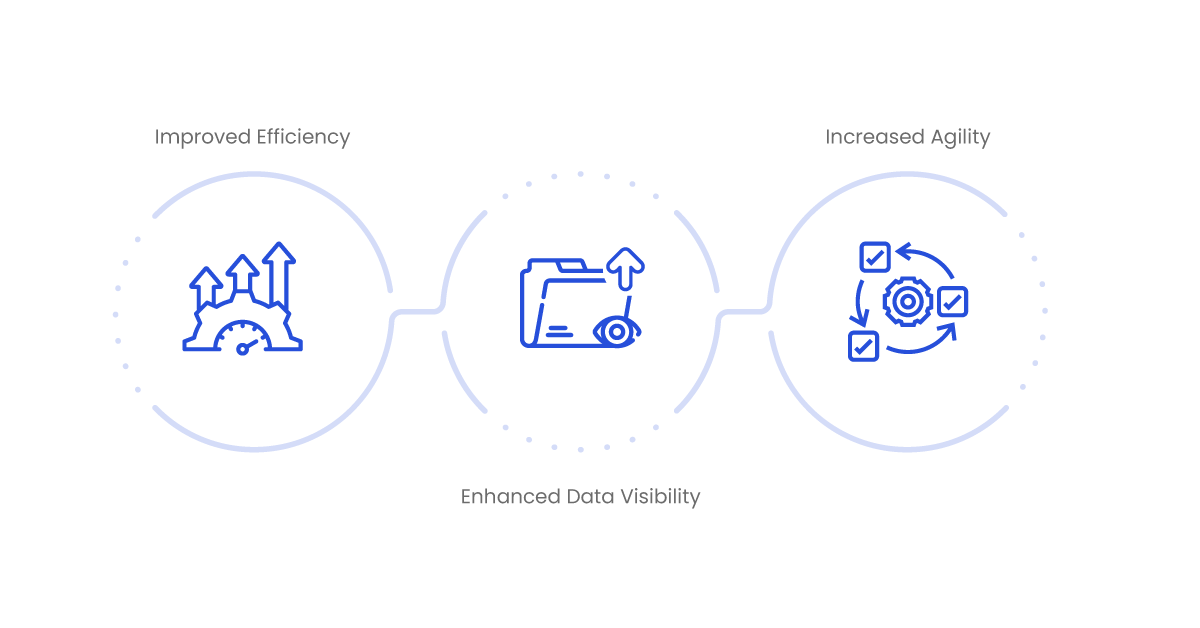Sales teams operate in a dynamic environment where adaptability and agility are key to success. In today’s rapidly evolving marketplace, organizations must continuously innovate and embrace change to stay ahead of the competition. Implementing effective change management strategies is essential for driving sales transformation and achieving sustainable growth.
Aonflow iPaaS – Free for First 3 Months!
Build and run up to 1,500 transactions monthly with no cost. No payment info needed!
Understanding Change Management in Sales
Change management in sales is a multifaceted process that involves orchestrating a structured transition from existing practices to desired outcomes. At its core, it’s about guiding individuals, teams, and entire organizations through a journey of transformation aimed at achieving sales objectives effectively. This journey is not haphazard; it’s meticulously planned, executed, and monitored to minimize disruptions and maximize success.
Strategic Planning:
At the heart of change management lies strategic planning. This involves setting clear objectives, defining the scope of change, and developing a roadmap to navigate through the transformation process. Sales leaders must carefully analyze market trends, customer behaviors, and competitive landscapes to identify opportunities for improvement and innovation.
Communication:
Effective communication is paramount in change management. Sales leaders must articulate the rationale behind the proposed changes, the benefits they entail, and the expected impact on individuals and teams. Open and transparent communication fosters trust and buy-in, enabling stakeholders to understand their roles and responsibilities in driving the change forward.
Training:
Transitioning to a new way of doing things often requires acquiring new skills and knowledge. Sales teams must be equipped with the tools, training, and resources necessary to adapt to evolving market dynamics and customer expectations. Training programs should be tailored to address specific skill gaps and empower employees to embrace change with confidence.
Monitoring:
Change is not a one-time event; it’s a continuous process that requires diligent monitoring and course correction. Sales leaders must establish metrics, KPIs, and performance indicators to track the progress of change initiatives and assess their impact on sales outcomes. Regular feedback loops enable teams to identify bottlenecks, address challenges, and refine strategies in real time.
By embracing change management principles, sales organizations can navigate through periods of transition with clarity, confidence, and resilience. Whether it’s implementing new technologies, restructuring sales processes, or adapting to shifting market dynamics, a proactive approach to change management is essential for driving sustainable growth and competitive advantage.
The Role of iPaaS in Change Management
In the realm of sales, iPaaS plays a crucial role in facilitating change management initiatives by enabling seamless integration between sales tools, CRM systems, marketing platforms, and other essential applications. By connecting these disparate systems, iPaaS provides a unified view of customer data, enhances collaboration among sales teams, and accelerates decision-making processes.
Seamless Integration:
At the heart of iPaaS lies its ability to orchestrate seamless integration. Sales organizations are often inundated with a plethora of applications and systems, each serving a unique purpose.
iPaaS steps in as the unifying force, breaking down silos and enabling these disparate systems to communicate effortlessly. Whether it’s syncing customer data between CRM platforms and marketing automation tools or integrating sales analytics dashboards with ERP systems, iPaaS ensures a frictionless flow of information across the sales ecosystem.
Unified View of Customer Data:
In the hyper-connected world of sales, a unified view of customer data is paramount. iPaaS acts as the central nervous system, consolidating data from various touchpoints and presenting a holistic view of customer interactions, preferences, and behaviors. This unified perspective empowers sales teams with actionable insights, enabling them to personalize engagements, anticipate needs, and forge deeper relationships with customers.
Whether it’s tracking lead interactions across multiple channels or analyzing purchase history to identify upsell opportunities, iPaaS unlocks the full potential of customer data, driving informed decision-making and revenue growth.
Enhanced Collaboration:
In today’s dispersed work environments, collaboration is key to success. iPaaS serves as the digital glue, fostering collaboration and alignment among sales teams scattered across geographies and time zones.
By providing a centralized platform for sharing information, collaborating on deals, and coordinating activities, iPaaS breaks down communication barriers and cultivates a culture of teamwork and synergy. Whether it’s streamlining communication between field sales reps and inside sales teams or facilitating cross-functional collaboration between sales, marketing, and customer support, iPaaS fuels collaboration, driving efficiency and productivity across the sales organization.
Accelerated Decision-Making:
In the fast-paced world of sales, timely decisions can make all the difference. iPaaS empowers sales leaders with real-time insights and analytics, enabling them to make informed decisions on the fly. Whether it’s identifying emerging trends, spotting opportunities, or mitigating risks, iPaaS delivers actionable intelligence at the speed of business.
By harnessing the power of data-driven decision-making, sales organizations can stay ahead of the curve, adapt to changing market conditions, and capitalize on new growth opportunities.
Aonflow is the leading integration platform.
You can kick-start by integrating your first-ever workflow in just a matter of minutes.
Key Technical Aspects of iPaaS Integration
Connectivity:
iPaaS revolutionizes connectivity by offering a rich ecosystem of pre-built connectors and APIs. These connectors serve as digital bridges, seamlessly linking diverse applications and systems, regardless of their underlying architectures or protocols. Whether it’s Salesforce for CRM, HubSpot for marketing automation, Marketo for lead management, or a myriad of other enterprise systems, iPaaS boasts a comprehensive library of connectors that simplify integration and accelerate time-to-value.
Gone are the days of custom coding and complex integrations; with iPaaS, connecting disparate systems is as simple as plug-and-play, enabling organizations to leverage the full power of their technology stack with ease.
Data Transformation:
In the world of data integration, harmonizing disparate data formats and structures is often a daunting challenge. iPaaS tackles this challenge head-on with robust data transformation capabilities. From mapping data fields to standardizing formats and cleansing inconsistencies, iPaaS platforms provide a suite of tools and functionalities to ensure data consistency and accuracy across integrated systems.
Whether it’s converting leads into opportunities, normalizing product catalogs, or enriching customer profiles with external data sources, iPaaS empowers organizations to unlock the true value of their data assets and drive actionable insights that fuel business growth.
Workflow Automation:
Manual tasks are the bane of efficiency in any organization. iPaaS liberates businesses from the shackles of manual labor with powerful workflow automation capabilities. From mundane data synchronization tasks to complex lead routing algorithms and order processing workflows, iPaaS enables organizations to automate repetitive tasks with ease. By streamlining workflows and eliminating manual intervention, iPaaS enhances operational efficiency, reduces errors, and accelerates time-to-market.
Whether it’s triggering automated follow-up emails based on customer interactions, updating inventory levels in real-time, or routing leads to the appropriate sales representatives based on predefined criteria, iPaaS empowers organizations to scale their operations and drive productivity gains that translate into bottom-line results.
Real-time Monitoring:
In the fast-paced world of modern business, real-time visibility is paramount. iPaaS delivers this visibility with robust real-time monitoring and alerting capabilities. Whether it’s tracking data flows between integrated systems, monitoring system health and performance metrics, or detecting anomalies and deviations from predefined thresholds, iPaaS provides organizations with a bird’s-eye view of their integration landscape.
By proactively identifying issues and bottlenecks, iPaaS enables organizations to minimize disruptions, mitigate risks, and ensure seamless operations. Whether it’s detecting data latency issues, identifying API failures, or alerting administrators to potential security threats, iPaaS empowers organizations to stay ahead of the curve and deliver exceptional customer experiences with confidence.
Benefits of Implementing iPaaS in Sales Change Management
Enhanced Data Visibility:
In the complex landscape of sales, having a unified view of customer data is akin to wielding a powerful telescope that enables sales teams to peer deep into the heart of their customer relationships. iPaaS integration serves as the lens through which disparate data sources converge, offering a panoramic view of customer interactions, preferences, and behaviors.
Armed with this comprehensive understanding, sales teams can craft hyper-targeted strategies, deliver personalized engagements, and nurture meaningful relationships that drive sales effectiveness. Whether it’s identifying cross-selling opportunities, tailoring product recommendations, or predicting customer churn, iPaaS empowers sales teams with actionable insights that fuel revenue growth and customer satisfaction.
Improved Efficiency:
Time is money, and in the fast-paced world of sales, every second counts. iPaaS integration acts as the catalyst for efficiency, liberating sales teams from the shackles of manual tasks and mundane administrative chores. By automating repetitive tasks such as data synchronization, lead routing, and order processing, iPaaS enables organizations to streamline workflows, reduce manual effort, and accelerate sales processes.
Freed from the burdens of tedious data entry and manual interventions, sales teams can focus their energies on high-value activities such as building relationships, closing deals, and driving revenue. Whether it’s automating email follow-ups, updating CRM records in real-time, or generating customized reports on the fly, iPaaS empowers sales teams to work smarter, not harder, and achieve greater results with less effort.
Increased Agility:
In today’s volatile business landscape, agility is the name of the game. Organizations must be nimble and responsive, able to adapt quickly to changing market conditions and business requirements. iPaaS integration serves as the linchpin for agility, offering a flexible and scalable platform that enables organizations to pivot, innovate, and evolve at the speed of business.
Whether it’s integrating new applications, onboarding emerging technologies, or scaling operations to meet growing demand, iPaaS provides the agility organizations need to stay ahead of the curve. By breaking down barriers to integration and enabling seamless interoperability between systems, iPaaS empowers organizations to embrace change with confidence, seizing new opportunities and mitigating risks in the ever-changing landscape of sales.
Challenges and Solutions
Embracing iPaaS for sales change management initiatives promises a plethora of benefits, yet navigating through its implementation journey is not without its challenges. From data security concerns to compatibility issues and resistance to change among users, organizations must be prepared to tackle various obstacles head-on. However, with strategic planning and proactive measures, these challenges can be mitigated, paving the way for successful iPaaS integration and transformation.
Data Security Concerns:
One of the foremost concerns organizations face when implementing iPaaS for sales change management is ensuring the security and confidentiality of sensitive data. With data breaches and cyber threats on the rise, safeguarding customer information and proprietary business data is paramount.
To address this challenge, organizations can implement robust data governance policies and security measures. This includes implementing encryption protocols, access controls, and authentication mechanisms to protect data at rest and in transit. Additionally, regular security audits and compliance assessments can help identify vulnerabilities and ensure adherence to industry regulations and best practices.
Compatibility Issues:
Compatibility issues between disparate systems and applications can pose significant roadblocks to iPaaS integration. With a myriad of technologies and platforms in use, ensuring seamless interoperability becomes a daunting task. To overcome compatibility challenges, organizations can conduct thorough compatibility testing before integration. This involves assessing the compatibility of applications, APIs, and data formats to identify any potential conflicts or discrepancies.
By leveraging iPaaS platforms like Aonflow that offer extensive compatibility support and pre-built connectors, organizations can streamline the integration process and minimize compatibility-related risks.
Resistance to Change Among Users:
Resistance to change is a common challenge encountered in any organizational transformation initiative, including the adoption of iPaaS for sales change management. Employees may be apprehensive about embracing new technologies, workflows, or processes, fearing disruption to their established routines. To address resistance to change, organizations must prioritize change management and communication strategies. This involves engaging stakeholders early in the process, articulating the benefits of iPaaS integration, and addressing concerns and misconceptions through transparent communication.
Additionally, providing comprehensive training and support programs can help alleviate fears and empower users to embrace iPaaS as a tool for driving sales effectiveness and efficiency.
Best Practices for Successful Implementation
Define Clear Objectives:
The foundation of a successful iPaaS integration initiative lies in clearly defining its objectives. Before embarking on the implementation journey, organizations must articulate the goals and desired outcomes they aim to achieve. Whether it’s improving sales efficiency, enhancing data visibility, or driving revenue growth, establishing clear objectives ensures alignment with sales strategy and business priorities.
By defining clear objectives, organizations can set a roadmap for success and measure the effectiveness of iPaaS integration against predefined metrics and KPIs.
Engage Stakeholders:
Successful iPaaS integration requires active involvement and collaboration from key stakeholders across the organization. From sales leaders and IT teams to end-users and business analysts, engaging stakeholders throughout the implementation process is crucial for gaining buy-in and fostering alignment.
By involving stakeholders from the outset, organizations can leverage their domain expertise, insights, and feedback to inform decision-making, prioritize requirements, and tailor the iPaaS solution to meet the unique needs of the sales organization. Additionally, fostering a culture of collaboration and shared ownership ensures that all stakeholders are invested in the success of the iPaaS integration initiative, driving adoption and positive outcomes.
Prioritize Data Quality:
Data is the lifeblood of sales operations, and ensuring its quality and integrity is paramount for the success of iPaaS integration. Organizations must invest in data quality management tools and processes to ensure the accuracy, completeness, and consistency of integrated data across systems. This includes implementing data validation rules, data cleansing procedures, and data governance policies to maintain data quality standards throughout the integration lifecycle.
By prioritizing data quality, organizations can avoid data inconsistencies, errors, and duplication, enabling sales teams to make informed decisions based on reliable and trustworthy data.
Conduct Comprehensive Testing:
Thorough testing is essential for identifying and resolving any issues or discrepancies before deploying iPaaS integration into production. Organizations must conduct comprehensive testing of integration workflows, data mappings, and system interactions to validate the functionality, performance, and reliability of the iPaaS solution. This includes unit testing, integration testing, and end-to-end testing to simulate real-world scenarios and ensure seamless interoperability between systems.
By conducting rigorous testing, organizations can uncover any potential bottlenecks, vulnerabilities, or compatibility issues and address them proactively, minimizing the risk of disruption and ensuring a smooth transition to iPaaS integration.
Case Studies: Real-Life Examples
- Company A: By implementing iPaaS to integrate its CRM system with marketing automation tools, Company A achieved a 30% increase in lead conversion rates and a 20% reduction in sales cycle times.
- Company B: Company B leveraged iPaaS to streamline order management processes across its global sales network, resulting in a 25% improvement in order accuracy and a 15% reduction in fulfillment times.
Conclusion
iPaaS offers a powerful solution for implementing change management in sales by enabling seamless integration, workflow automation, and data-driven insights.
By leveraging iPaaS platforms effectively, organizations can enhance sales effectiveness, improve operational efficiency, and drive sustainable growth in today’s dynamic business landscape.
Aonflow iPaaS – Free for First 3 Months!
Build and run up to 1,500 transactions monthly with no cost. No payment info needed!


